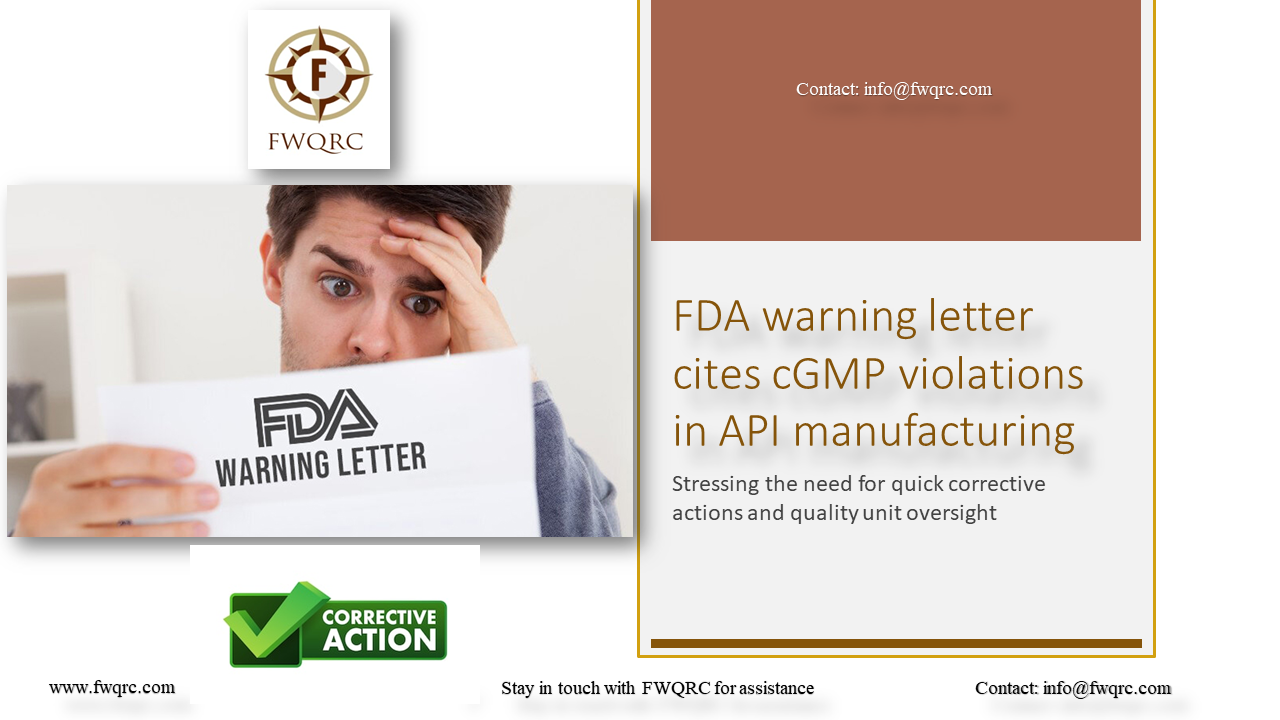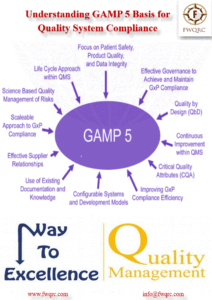An FDA warning letter is an official message from the United States Food and Drug Administration (FDA) to a manufacturer or other organization that has violated some rule in a federally regulated activity
Newly posted FDA warning letter issued to a foreign drugmaker offers a few important lessons around trending CGMP problems that regularly appear in Form 483s and warning letters
Let’s quickly break down the deficiencies observed;
1. Failure to Follow and Document Laboratory Controls
The firm did not ensure the integrity of data generated by its Quality Control (QC) microbiology laboratory. Specifically, microbiological plates supporting API production were not read and recorded contemporaneously.
Conflicting information was provided regarding whether results had been recorded following established procedures. An investigation confirmed that test results were not documented contemporaneously, with QC personnel admitting to relying on memory for results. This raises concerns about the validity and integrity of the laboratory testing records.
The FDA deemed the firm’s response inadequate because it failed to detail a retrospective review of all documentation practices and data records for APIs distributed to the U.S. market. The FDA requested a complete assessment of documentation systems, a comprehensive investigation into data inaccuracies, a current risk assessment of the potential effects on drug quality, and a management strategy that includes a global CAPA plan
2. Failure of the Quality Unit to Exercise Responsibility
The firm’s QU failed to ensure that API manufacturing operations complied with CGMP. This included failures in confirming deviations in testing methods were investigated and resolved, ensuring adequate document control, and extending product quality complaint investigations.
The firms’ response acknowledged these deficiencies but was considered inadequate due to a lack of a sufficient retrospective review of investigations and data retention deficiencies.
The FDA requested a comprehensive assessment and remediation plan to ensure the QU functions effectively, including provisions for QU oversight, a complete review of each batch before disposition decisions, and top management support for quality assurance
3. General Observations
The FDA highlighted the inadequacy of the firm’s quality systems and recommended consulting the FDA’s guidance document on Quality Systems Approach to Pharmaceutical CGMP Regulations for implementing appropriate quality systems and risk management approaches.
The FDA also referred to the ICH Q7 guidance document for CGMP conformance in API manufacturing and the guidance document on Data Integrity and Compliance with Drug CGMP for establishing CGMP-compliant data integrity practices.
The firm committed to suspending the production of the specific API for the U.S. market and was advised to notify the FDA before resuming any manufacturing operations to ensure compliance with CGMP. The firm was recommended to engage a qualified consultant to assist in meeting CGMP requirements, with the clarification that using a consultant does not relieve the firm of its obligations to comply with CGMP
A few questions to ask in light of this warning letter:
- Have you implemented a strict policy ensuring all laboratory activities and data are documented at the time of performance, including readings, calculations, and observations?
- Are you using a data capture system to automatically timestamp actions and reduce reliance on manual record-keeping?
- Do you conduct regular training for all personnel on data integrity principles, emphasizing the importance of accurate, timely, and truthful recording of all data?
- Have you installed and enforced the use of access controls and audit trails on all electronic systems used in manufacturing and testing to monitor and protect data integrity?
- Have you developed a clear organizational structure that supports the independence of the QU, including direct access to top management for escalating issues?
- Do your investigations extend beyond the immediate batch or process to assess potential systemic impacts and proactively identify and mitigate similar issues across operations?
- Are you conducting regular internal audits to assess compliance with CGMP and identify areas for improvement?
Talk to us about auditing and remediation support if you don’t know or aren’t satisfied with your answers to any of these questions (and want to stay out of these warning letter reports).
Our quality and compliance specialists have extensive knowledge and experience in relevant regulations, guidances, and best practices related to quality system management throughout the regulated life science industries
FWQRC expert team help you by reviewing, preparing, and advising your company so you definitely pass the inspection

If you have any specific requirements or need further details, please contact info@fwqrc.com, +91 9489358902
#food #drugs #cosmetics #medicaldevices #pharma #pharmaceutical #quality #qualityassurance #qms #qmsnews #gmp #risk #riskmanagement #capa #mitigation #auditorias #leadauditor #irca #cqi #consultant #regulatory #services #trending #trendingnow #trendingvedio #iso #isoleadauditor #9001 #pqms #14000 #45000 #14298 #training #academy #validation #vendorslist #qualification #qualifications #amv #clv #eugmp #edqm #fda #21cfr




